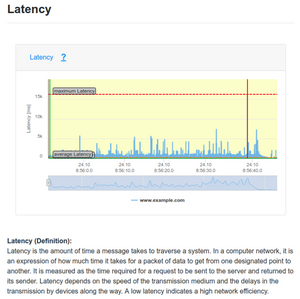Die Arbeitsgruppe zieht um!
Wir wechseln im Wintersemester 2021/22 an die Universität Bamberg. Ab 15. Oktober 2021 übernimmt Fabian Beck den dortigen Lehrstuhl für Informationsvisualisierung.
Neue Webseite der Arbeitsgruppe: https://www.uni-bamberg.de/vis
Publikationen
Publikationen der Arbeitsgruppe, die seit 2016 erschienen sind. Frühere Publikationen von Fabian Beck sind auf Google Scholar oder DBLP zu finden.

Art der Publikation: Beitrag in Sammelwerk
Concern-driven Reporting of Software Performance Analysis Results
- Autor(en):
- Okanović, Dušan; van Hoorn, André; Zorn, Christoph; Beck, Fabian; Ferme, Vincenzo; Walter, Jürgen
- Titel des Sammelbands:
- Companion of the 2019 ACM/SPEC International Conference on Performance Engineering
- Seiten:
- 1-4
- Verlag:
- ACM
- Veröffentlichung:
- 2019
- Digital Object Identifier (DOI):
- doi:10.1145/3302541.3313103
- Volltext:
- Concern-driven Reporting of Software Performance Analysis Results (568 KB)
- Zitation:
- Download BibTeX
Kurzfassung
State-of-the-art approaches for reporting performance analysis results rely on charts providing insights on the performance of the system, often organized in dashboards. The insights are usually data-driven, i.e., not directly connected to the performance concern leading the users to execute the performance engineering activity, thus limiting the understandability of the provided result. A cause is that the data is presented without further explanations.
To solve this problem, we propose a concern-driven approach for reporting of performance evaluation results, shaped around a performance concern stated by a stakeholder and captured by state-of-the-art declarative performance engineering specifications. Starting from the available performance analysis, the approach automatically generates a customized performance report providing a chart- and natural-language-based answer to the concern. In this paper, we introduce the general concept of concern-driven performance analysis reporting and present a first prototype implementation of the approach. We envision that, by applying our approach, reports tailored to user concerns reduce the effort to analyze performance evaluation results.
